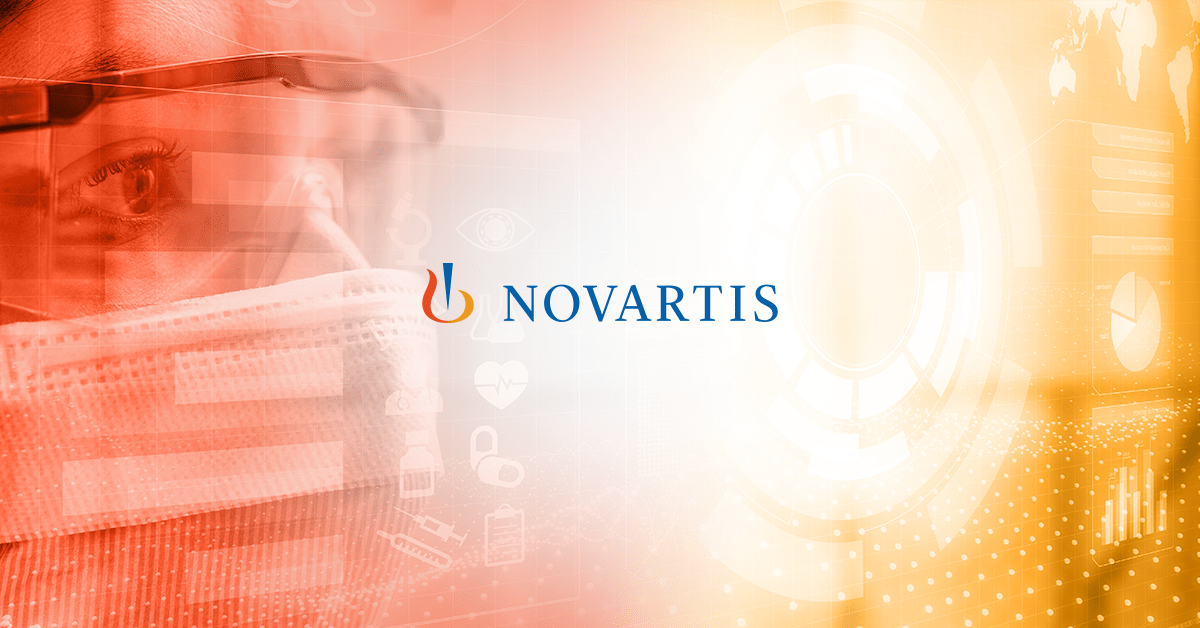Novartis Steps Up Digital Strategy for AMD Treatments and Patient Support

Novartis is doubling down on its mission to end preventable blindness, which has translated into a host of moves to strengthen its commitment to age-related macular degeneration (AMD) treatments and support. Its latest move is in the digital health space with the launch of a new feature on the MyTherapy app, a pill reminder and medication tracker shown to improve medication adherence. It’s also a medical-grade operating system for digital therapeutics and patient support.
The app will feature content retooled from See What’s Next, a Novartis site that includes information for wet AMD patients and caregivers. The app complements Novartis’ ViaOpta suite of apps designed for healthcare professionals and patients.
Latest digital collaboration
Novartis chose smartpatient, the Munich-based company behind MyTherapy, for its solid track record. To date smartpatient – the name is all lower case – launched more than 70 digital programs in more than 20 countries with partners such as Pfizer and Merck, among others.
“smartpatient is an extremely robust solution and the platform is very intuitive,” said Nikos Tripodis, PhD, worldwide franchise head, ophthalmology, for Novartis. “Their proven success record made them an ideal partner for this project.”
Novartis incorporates digital health, artificial intelligence, and other data-driven initiatives throughout its portfolios. Ophthalmology, Dr. Tripodis said, renders itself a good fit for digital health: we use our eyes to consume information. “We’re looking at applying digital solutions across the whole spectrum of disease management, therapeutic discovery, and ultimately in the space of improving outcomes,” he said.
Other digital initiatives
Other Novartis data initiatives include using analytics to interpret clinical data faster and more accurately. Novartis also recently introduced FocalView, an app that allows patients to self-record measurements while participating in clinical trials. Not only can the app help patients avoid trips to the research site (especially important during a pandemic), but it also allows researchers to collect more data. “You can take many more measurements, and, therefore you can start extracting data that previously you had no access to,” said Dr. Tripodis.
Novartis also announced a multi-year collaboration with RetinAI Medical, a Switzerland-based company that develops software for medical and pharma research, to support multiple projects in ophthalmology digital health. The acquisition of start-up Amblyotech last spring allows Novartis to pursue a gaming solution for people with amblyopia.
“We try to learn from all sides on how to use data and digital to enhance our knowledge, accelerate development, improve diagnosis, and help patients become more self-aware, compliant, and ultimately help improve their condition,” explained Dr. Tripodis.
Leveraging data for Beovu
Recent and forthcoming digital solutions support the company’s ophthalmology drugs, including, most recently, wet AMD treatment Beovu (brolucizumab). The company recently updated its prescribing information in light of inflammation-related adverse events.
Analysis of real-world and Phase III data showed the highest-observed risk factors for developing retinal vasculitis (RV) and/or retinal vascular occlusion (RVO) within six months after the first Beovu injection were a history of intraocular inflammation and/or prior RVO in the 12 months before the first Beovu injection.
Examining the data of 12,000 patients treated with Beovu, the analysis found an observed overall RV/RVO risk rate of 0.46%. This number increased to 3.97% in individuals with prior intraocular inflammation and/or RVO.
“We are pioneers in this space, with the introduction of Visudyne (verteporfin), with our partnership with Genentech to introduce the first anti-VEGF treatment, and with Beovu,” said Dr. Tripodis. Visudyne, marketed by Bausch + Lomb in the US, is a light-activated drug used in photodynamic therapy for patients with a specific form of AMD. The Genentech partnership gives Novartis ex-US rights to Lucentis (ranibizumab).
“We also have an active research program looking into additional assets that could further improve outcomes for patients beyond the existing anti-VEGF therapies,” Dr. Tripodis added.
